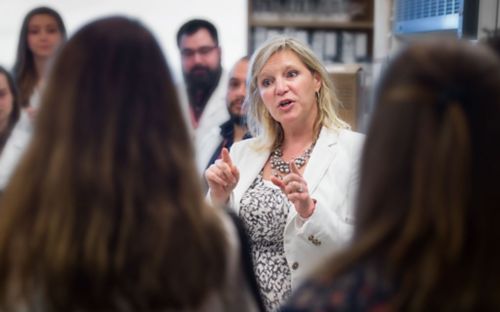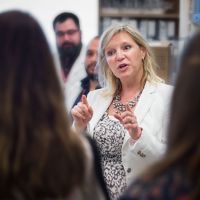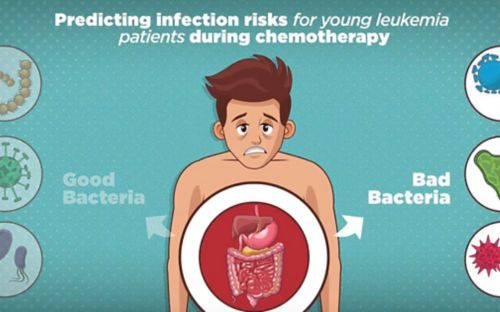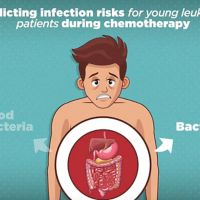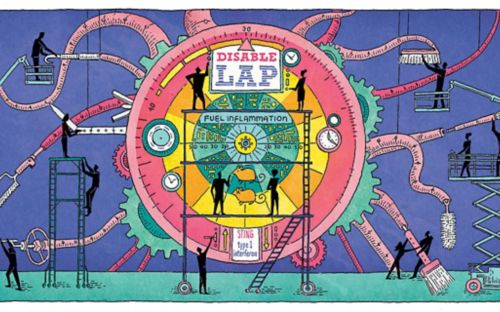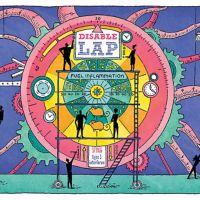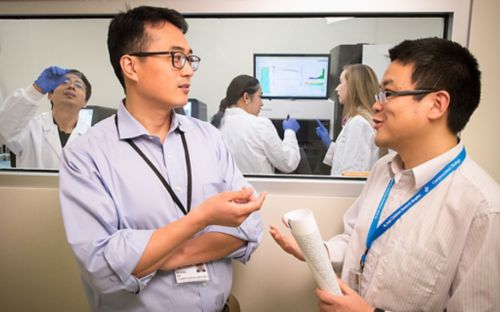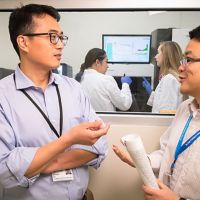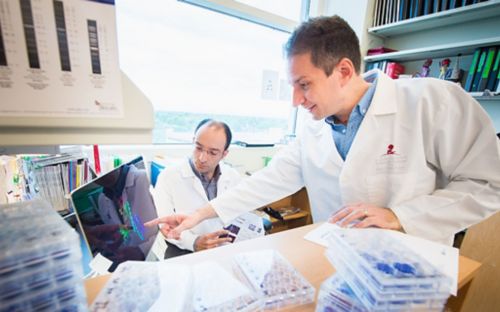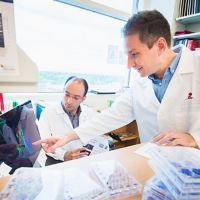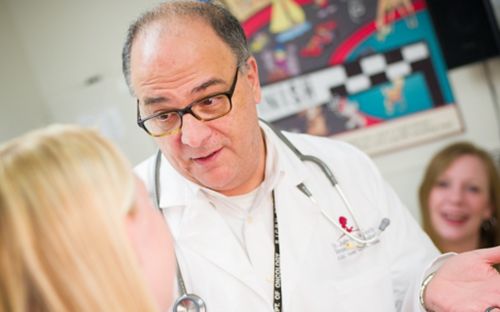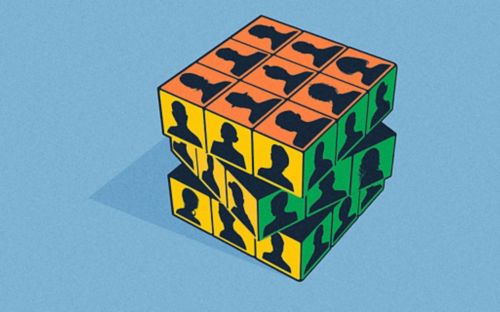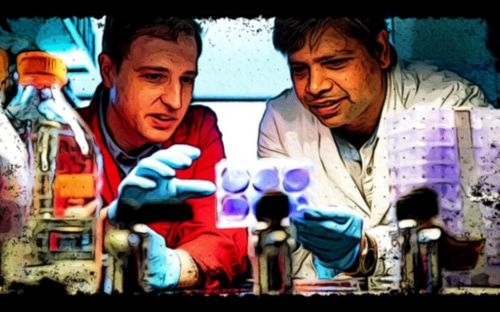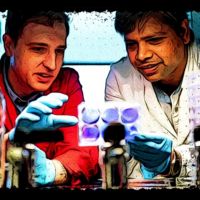St. Jude Family of Websites
Explore our cutting edge research, world-class patient care, career opportunities and more.
St. Jude Children's Research Hospital Home

- Fundraising
St. Jude Family of Websites
Explore our cutting edge research, world-class patient care, career opportunities and more.
St. Jude Children's Research Hospital Home

- Fundraising
Research
Learn about published research as well as leading-edge basic and translational research initiatives from St. Jude laboratories.
Can obesity give influenza more time to spread and make vaccines less effective?
St. Jude researchers, led by Dr. Stacey Schultz-Cherry, are asking questions about potential association between flu severity and the obesity epidemic.
Gut microbiome sequencing opens new possibilities for predicting infection in leukemia patients
Researchers identify intestinal microbiota that may predict infection risk during chemotherapy in pediatric ALL patients. Learn about the gut microbiome.
New drug for a rare disorder: How will Gamifant’s approval affect HLH treatment?
HLH, a rare disorder of the immune system, is caused by a buildup of proteins responding to infection. Read about a new treatment that limits that buildup.
Tumor microenvironment switches from homely to hostile when this process is turned off
Researchers learn how this housekeeper for cancer cells turns into a cancer house killer. Learn how targeting LAP could promote an anti-tumor response and slow tumor growth.
New algorithm could help us better understand cancer at its genetic level
This new cancer algorithm shows possible precision options for cancer treatment.
Cancer-fighting ninja protein may offer clue to create self-harming cancer cells
This shape-shifting cipher of the cell may hold the key to curing cancer through causing cancer cells to kill themselves.
Will Mother Nature deal a deadly hand with influenza virus?
How close are we to another deadly influenza virus pandemic? Read about how scientists are figuring out how to prevent the next catastrophe.
Targeted therapy larotrectinib could make tumors with rare NTRK fusion genes less lethal
Newly approved Vitrakvi (larotrectinib) scored high patient response rates by inhibiting a rare chromosomal abnormality that drives tumor growth.
What is extreme phenotype sequencing? Taking STEPS to improve genome-wide association studies
Will a new genome sequencing data mining technique reveal the mother lode of secrets for treating cancer and other catastrophic diseases?
What is causing resistance to the new flu drug, Xofluza?
A recently discovered mutation that occurs when the flu virus is exposed Xofluza could also cause drug resistance.
